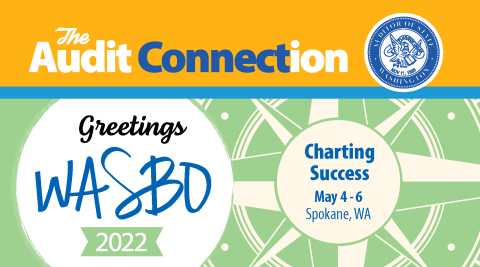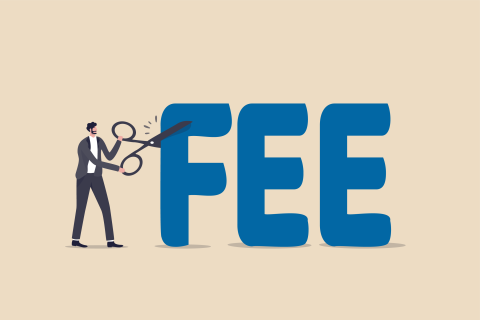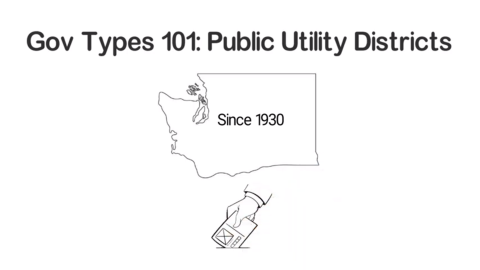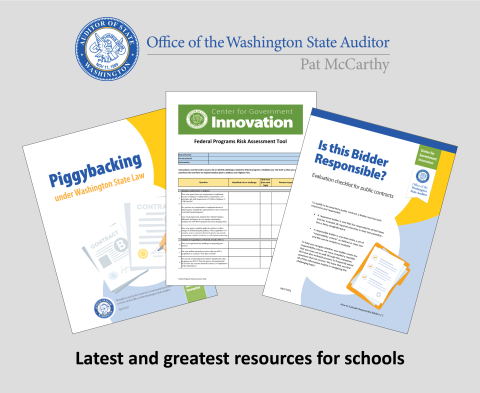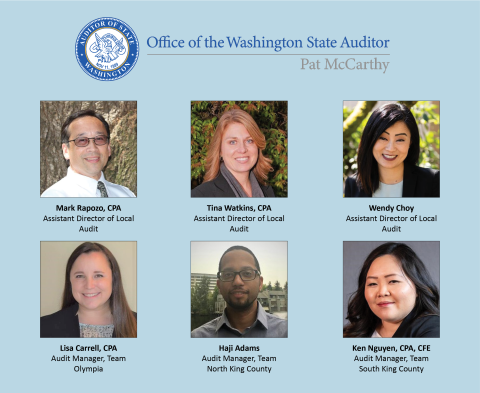The Audit Connection Blog
New rules for accounting and reporting on leases and SBITAs
Accounting and reporting guidance for leases and subscription-based information technology arrangements (SBITAs) are changing for school districts and charter schools. Before this change, districts and charters used a somewhat subjective test to determine if a lease should be classified as “operating” or “capital.” Under the new guidance, all leases (with a few stated exceptions) are just leases, eliminating “operating” leases. The primary goal of the new accounting method is to increase comparability across governments; it also gives financial statement users better, more complete information by establishing a single model for lease accounting. ... CONTINUE READING
Schools and school districts: Check out the special WASBO edition of our newsletter, just for you
This week, the Washington Association of School Business Officials (WASBO) is hosting its annual conference. As is our custom, we have created an Audit Connection newsletter designed just for schools and school districts. ... CONTINUE READING
What you need to know about audits and HB 1660, which affects how districts use ASB funds
Since the state Legislature approved House Bill 1660 in June 2020, school districts across Washington have been examining the law to understand what is required of them and how to manage their Associated Student Body (ASB) funds. Here’s a quick refresher about the law, who’s responsible for setting the criteria, and how SAO plans to audit this area. ... CONTINUE READING
#Gov101 series returns with a look at public utility districts
We’re firing up our #Gov101 series again! This time, we’re featuring public utility districts, also known as PUDs. For the next few weeks, we’ll tell you all about these special purpose districts: how they’re governed, how they get and spend public dollars, and how you can participate at your local PUD. ... CONTINUE READING
SAO’s latest and greatest resources for schools
We’re excited to see you in person at this year’s annual WASBO conference. Since we last saw you—virtually in 2021—we’ve updated some of your favorite resources, like the school’s financial statement review and preparation checklist, and made some changes to our piggybacking best practices guide. We’ve also launched new guides and checklists for payroll and accounts payable that you won’t want to miss. And with the influx of federal money to school districts, we’ve created a new tool to help with your federal grant programs. Stop by our booth to learn more about these resources! ... CONTINUE READING
Discover what’s new in FIT this spring
We’re excited to announce the release of new features in our Financial Intelligence Tool (FIT)! You’ll now have access to more details about local governments’ debt and liabilities and a direct link to helpful FIT resources. We’ve also launched our new live annual filing submission tracker and made several other enhancements for a better user experience. ... CONTINUE READING
Annual report filing deadline is around the corner—which local governments have already filed?
Spring is here and so is the annual report filing season. This year, we bring you a refreshed way to view filing progress across the state. Powered by SAO’s Financial Intelligence Tool (FIT), our new infographic updates daily as we approach the deadline. ... CONTINUE READING
School district data coming soon to FIT
The Office of the Washington State Auditor is excited to announce the addition of school district financial data to our Financial Intelligence Tool (FIT) this summer. FIT is a unique and powerful way to visualize and analyze the financial data of Washington’s local governments. ... CONTINUE READING
Are you evaluating the risks to your federal programs? SAO has a new tool to get you started
Imagine you are planning an expensive Hawaiian vacation—your first in two years. One of the first things you check is whether any of the costs are refundable if something were to prevent you from going. When you learn you could lose your deposit if you pull out of the trip, you plan to buy trip insurance just to be safe. In other words, you’ve identified a risk and found a way to mitigate it. ... CONTINUE READING
SAO announces key leadership changes
The State Auditor’s Office is excited to announce several key leadership changes. Please join us in congratulating all of our talented staff members on their new roles with SAO. ... CONTINUE READING


